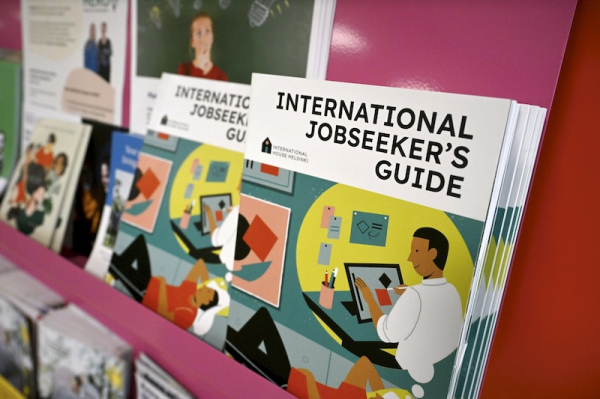
Brochures in different languages at the Helsinki employment services office on 17 February 2025. As of the beginning of 2025, the responsibility for organising TE services shifted from the state to municipalities. LEHTIKUVA
- Next Article Finnish youth feel connected to society but faith in the future is fading
Municipal employment areas across Finland are struggling with budget shortages, forcing them to suspend wage subsidies and startup grants just months after taking over employment services from the state.
The transition, which transferred responsibility from state-run TE Offices to 45 municipal employment areas at the start of 2025, has not gone smoothly.
Several regions report that funds allocated for employment support are already exhausted, largely due to commitments made last year that carried over into 2025.
In the Kymppi employment area in South Ostrobothnia, discretionary wage subsidies have been halted for the remainder of the year. Similar problems are reported in Rovaniemi and the TyöLakeus region, where funds for both wage subsidies and startup grants have already been used up.
The employment area of Central Ostrobothnia has seen its €1.5 million budget nearly depleted within the first few months of the year. As a result, authorities have been forced to shorten the maximum duration of wage subsidies and startup grants to spread remaining funds across more applicants.
The Ministry of Economic Affairs and Employment acknowledges the issue but says municipalities need time to adjust.
“This reform has only been in place for a few months, so it’s too early to make broad conclusions,” said Ville Heinonen, a senior expert at the ministry. “These kinds of challenges are expected in the early stages of such a transition.”
The core issue stems from the way financial obligations from 2024 were transferred to municipal employment areas without sufficient adjustments to their budgets. Many regions were unaware of the full extent of their inherited financial commitments when setting their 2025 budgets, leaving them with little room to maneuver.
“We were initially told that around €300,000 in obligations would carry over,” said Perttu Kellomäki, director of the Central Ostrobothnia employment area. “But in December, this figure was increased by another €1 million. By then, our budget was already set, and we had no way to respond.”
Despite these challenges, municipalities will receive some financial compensation from the state in April to cover unpaid commitments from 2024. However, these reimbursements will not help areas struggling to fund new wage subsidy applications this year.
Kymppi employment area director Aki Ruotsala confirmed that no new wage subsidies will be granted in 2025, except for those supporting workers over 55, which remain a legal right.
Some municipalities have reached out to government officials and MPs, requesting additional funding. However, with municipal budgets already under pressure, local leaders say they cannot rely on their own re
Source: www.helsinkitimes.fi
